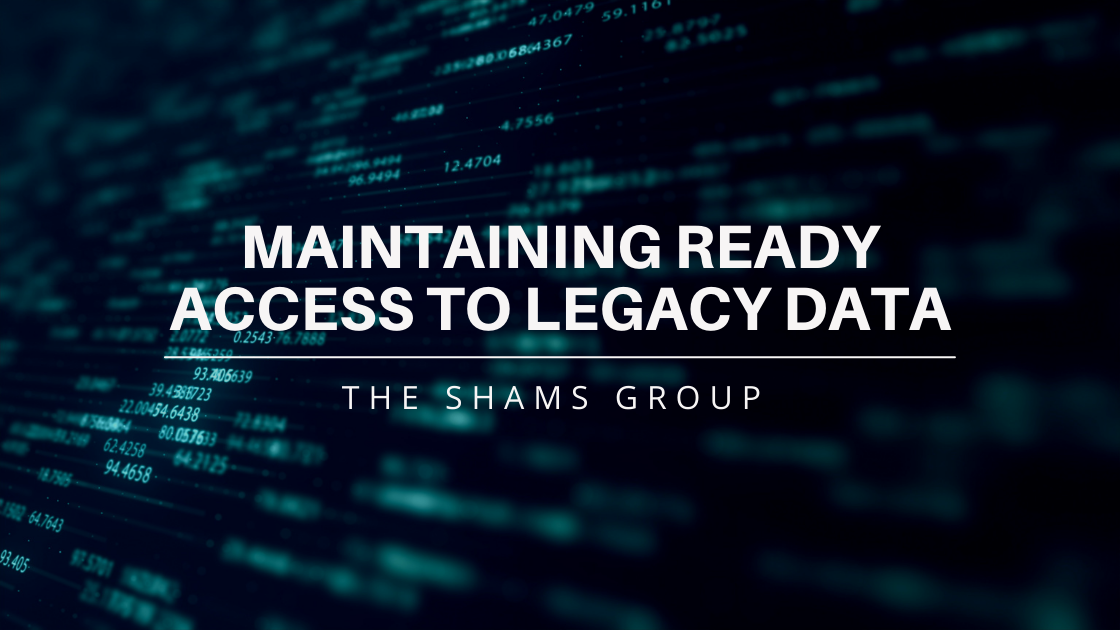Maintaining Ready Access To Legacy Data — Without High Licensing Fees
Your healthcare organization is upgrading to a new EHR. Perhaps it’s upgrading from a scattered, multi-system IT infrastructure to a completely centralized, single-system platform, such as MEDITECH Expanse. No matter how you plan to deal with the legacy data, some of it simply will not be compatible with the new system. So, how will clinicians, physicians, and medical records staff maintain access to that legacy data, which is legally protected, clinically advantageous, and the Achilles heel of skilled coders everywhere?
Many are seeking to increase digital capabilities and cyber security by upgrading to a new EHR, and we know that means they’re considering options for dealing with legacy data. So, let’s talk about how you can maintain ready access without high licensing fees.
The Problem with Legacy Data
It’s impossible to be sure assumptions made about legacy code won’t be erroneous. That’s because the maintainer is no longer the writer, and the writer no longer maintains that codebase. Most often, those people have went on to greener pastures — to completely different pastures, really. And they aren’t coming back.
This challenge has to be addressed head on. If it’s not, then patient experience, data privacy, and HIPAA compliance issues could sprout. But the data is yours, not the vendor’s. The only question is what’s possible for you to do with it.
Any archival plan that allows organizations to maintain easy access to their own data is worth consideration, and archival systems provide great utility in dealing with legacy data.
One Way to Maintain Quick Access
With the risks to system integrity, access to information, and prompt patient care that legacy systems pose, they can be replaced with pleasure. But it would be unthinkable to throw the legacy data out with the legacy system.
Archival systems, which are usually hosted in the cloud and require data extraction, offer a ready solution for organizations that want to maintain quick access without compromising data integrity. Being based in the cloud provides increased security. A successful migration strategy ensures data is safeguarded and accurate. With a link in the new system to the legacy data in the archival system, clinicians can access relevant patient data from patient charts, as can HR staff from their interface dashboards.
How To Fast Track Your Archival Plan
Not all healthcare organizations are able to extract EHR data from legacy systems using in-house staff. In such cases, outsourced experts or consultants can be used to fast track the project and ensure a seamless migration. This might involve anything from project management to technical guidance and support. It’s prudent to evaluate the scope of in-house capabilities and fill in gaps accordingly.
As exciting as upgrading an outdated system may be, legacy data is a challenge that can’t be ignored. Any archival plan that allows organizations to maintain easy access to their own data is worth consideration, and archival systems provide great utility in dealing with legacy data. Unending patchwork and high licensing fees don’t have to be a part of the plan.
You Might Also Like:






